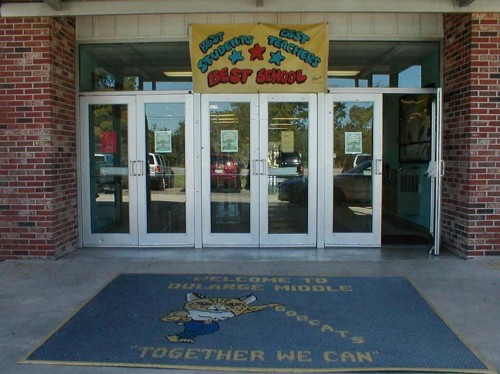
Dularge Middle sets bar for educating the poor
February 22, 2011Thursday, Feb. 24
February 24, 2011When public school students test well they and their teachers deserve credit. When grades indicate need for improvement they require attention.
Academic test scores not only reveal how students are currently doing, they can also offer a sobering indication of how a future workforce might perform outside the walls of academia and prompt reason for concern.
In 2001, the high school graduation rate in Louisiana was 69 percent – a troubling level by itself. Almost ten years later, according to the U.S. Department of Education that number has dropped to slightly more than 67 percent, leaving the bayou state 47th in the nation for successful completion of a K-12 investment of time, teaching and taxpayer dollars.
In the coming weeks, Tri-parish students in grades 3-9 will take the Louisiana Educational Assessment Program examinations. Past results list schools in Terrebonne, Lafourche and St. Mary parishes as needing improvement with overall scores from 2010 that fall in an average performance range of 65 to 69 percent – requiring all three parishes to be listed on a level identified as academic watch by the Louisiana Department of Education.
While grades 3 to 7 scored better than 8th and 9th graders, and overall improvement was up 2 percent in 2010 from 2009, LEAP levels for the three parishes lag behind the state’s median performance label range of 100 to 119.
According to the DOE, Louisiana’s student accountability system has shown “extraordinary progress in terms of improving student achievement” and been nationally recognized as being among the best.
Yet, teachers and administrations contend that constant testing is not truly educating our children. That time spent preparing for a large number of examinations, which local administrators have difficulty keeping up with, and constantly changing requirements, leave little time for teaching the fundamentals that include instructing young people on how to study and learn.
Teachers admit that most children are making their way through the system and are not being left behind, but raise concerns that they are not gaining the education they deserve.
This week, we take a look at public school education in the Tri-parish region. A brief examination we trust that might offer some insight on the challenges students, teachers and parents face when it comes to successfully preparing younger generations for future opportunities and challenges. But will they be able to make the grade?




